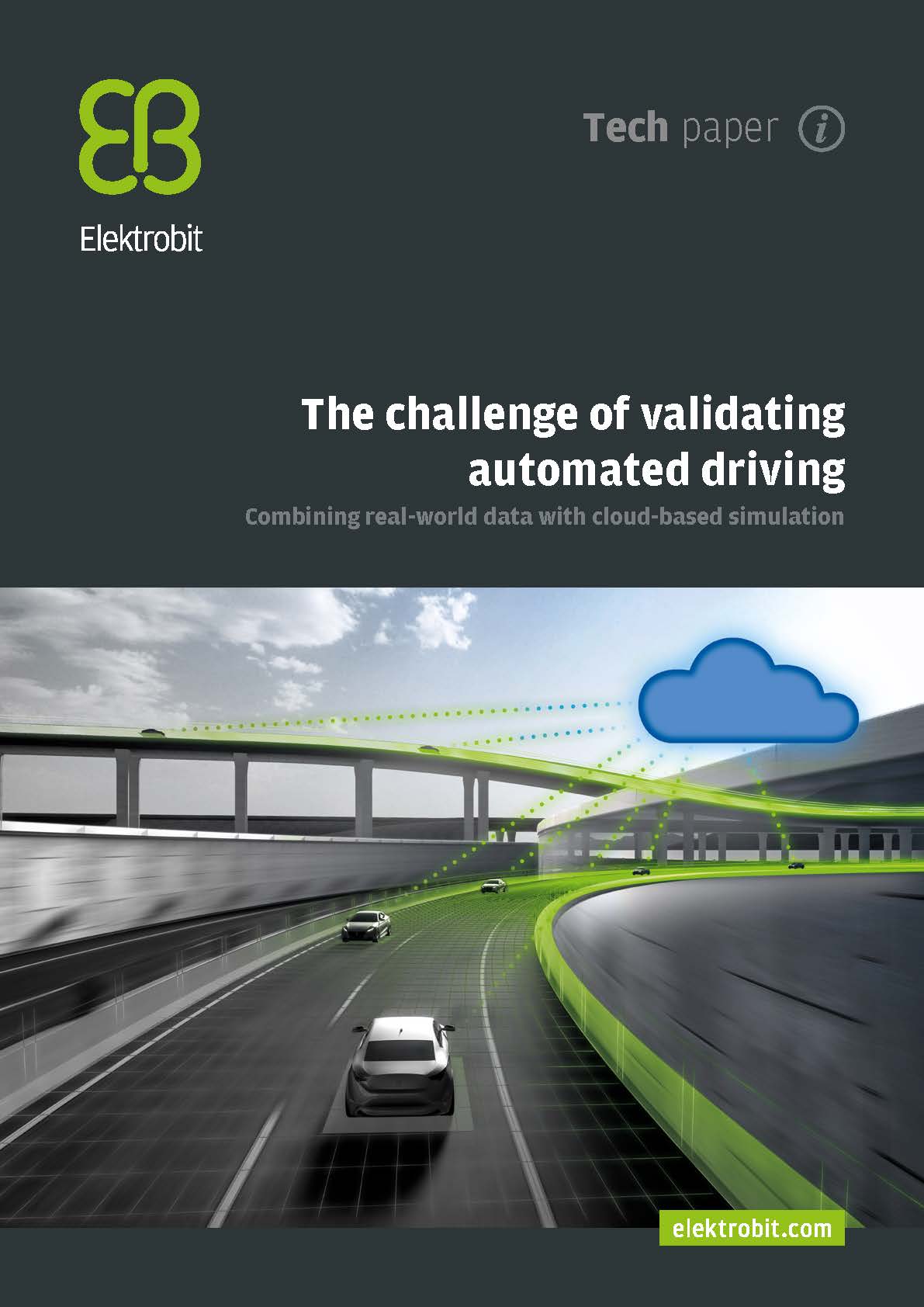This paper analyzes the scope of testing and validation necessary for automated vehicles to be safe and ready for series production.
Table of contents
- The validation challenge: how much is enough?
- Using simulation to improve real-world driving
- The validation toolchain
- Scenario generation
- Data ingest and storage
- Data enhancement
- Data access management
- Test case management
- Test execution and post-processing
- An open design to suit every developer
- Conclusion
Elektrobit (EB) is a world-leading supplier of connected and embedded software products to the automotive industry. As the world moves rapidly towards self-driving vehicles, we provide key software and hardware solutions for improving, testing, and validating automated driving systems.
Automated vehicles must prove to be reliable in virtually every complex driving scenario. To achieve this, systems must be validated in a range far broader than ever before. Numbers for this are ranging up to billions of test miles. This can only be done by shifting a large proportion of testing and validation to the virtual world. However, real test drive data will also remain an inevitable part.
This white paper details the challenges, which have been identified within this topic, and introduces an approach to a comprehensive toolchain to overcome the various challenges ahead. A flexible platform that covers data from both real driving scenes and simulation creates the basis to cover all required use cases for validation. In addition, automation brought to data administration, enhancement, and labeling enables us to handle the huge amount of required tests cases at reasonable expenses.
As the test data volumes can be massive, EB incorporates the Azure cloud platform to address the scalability challenges associated with the processing and storage of PB-scale test data. Developers can now upload and store petabytes of real and simulated test drive data via a robust, secure high-speed cloud network from anywhere in the world. Furthermore, Azure provides
unmatched performance, flexibility, and scalability. By bringing this toolchain to Azure, it becomes possible to manage, execute, and post-process multiple tests — accessing the very same data at the same time.
As the described approach to this holistic validation toolchain is designed using open interfaces, it will be possible to create a truly comprehensive solution together with partners, answering the specific needs of car makers and suppliers.
Already collaborating with many of the world’s top car makers, EB and Microsoft will be making driving more reliable — and more enjoyable — for all road users.
Development, visualization, and test environment: EB Assist ADTF
High-precision data-logging, replaying, and simulation: EB Assist CAR Box
Click on the button to load the content from Pardot.



